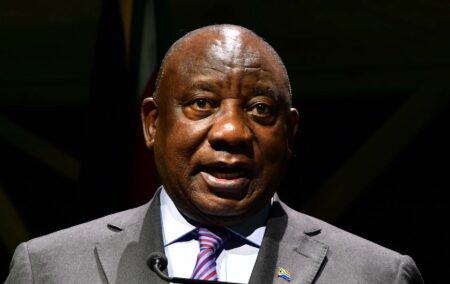Left unchallenged, the “sinister legitimacy that race-baiting has acquired over decades” stands as a threat to “the cooperation across borders of race, ethnicity and political affiliation that is essential for the country’s future success”, says the Institute of Race Relations (IRR).
This cautionary sentiment comes in a statement commending President Cyril Ramaphosa for his remarks in support of non-racism.
In a statement, the IRR notes that in the debate on his Opening of Parliament Address, the President said: “Non-racialism is not a concession. It is not an act of charity.”
The IRR says: “Here he is entirely correct. Non-racism is a foundational value of the Constitution; it is a requirement for the functioning of the state. To be regarded as a specific and unique human being, irrespective of one’s racial or ethnic identity, is an entitlement of every South African citizen.
“Too often, however, political discourse has turned to crude race-coded rhetoric and appeals to destructive group solidarity, which have at their core the notion that citizenship is contingent on ascriptive group identity. This has been a seductive course for many interests, political, ideological and pecuniary.
“This has been on display during the debate. The President’s further remarks were thus to be welcomed: ‘We must not allow our work to be derailed by sowers of disunity. The name-calling, race-baiting and ethnic chauvinism we have seen in the course of this debate has been regrettable.’”
The IRR says that all parties to the GNU – and all South Africans of goodwill – “need to take responsibility for elevating our politics and resisting the easy temptation to use racial animosity and solidarity as weapons”.
The statement adds: “Fortunately, most South Africans take a moderate view on these matters. Last year, the IRR polling showed that around 67% South Africans supported the proposition that ‘the different races need each other for progress and there should be full opportunity for all’.
“Experience of cross-racial interaction was fairly positive, with 58% saying they had experienced no racism in the past three years, as opposed to 41% who had.
“Other polling has shown an even more optimistic picture. Stats SA’s Governance, Public Safety and Justice Survey: 2018/19, published in August 2019, found that just under 7% of respondents reported having experienced discrimination based on race in the previous two years. The proportion of those who had experienced discrimination across all fields – race, gender, nationality, sexual orientation et al – stood at 13%.
“In addition, 25% reported having received an act of kindness from someone of a different race in the past twelve months, while 30% performed one.”
The IRR says that “(all) of this is promising, but it points to ongoing challenges”.
“No one should deny the existence of racism, for example. But these challenges are, however, manageable and can benefit from calm and respectful dialogue and action. The challenge is to fortify non-racism in opposing racism. Denigrating non-racism and advocating racial esteem teams is a pathway to ruin.
“Meanwhile, a wealth of polling exists showing that South Africans want institutions that work – the race of those staffing them being a distinctly second-order priority – and opportunities that will improve their material circumstances. Foremost here is employment, and the economic growth that will make it possible.”
The Institute has drawn up growth proposals, entitled The IRR’s Blueprint for Growth: Arming SA’s Pro-Growth Forces, which could elevate growth to as much as 7% a year.
“Success of this nature would fortify constitutional governance and call the bluff on those seeking to stoke conflict and division.”
[Image: https://www.flickr.com/photos/governmentza/52674553686]

